30 Mar 2020 - {{hitsCtrl.values.hits}}
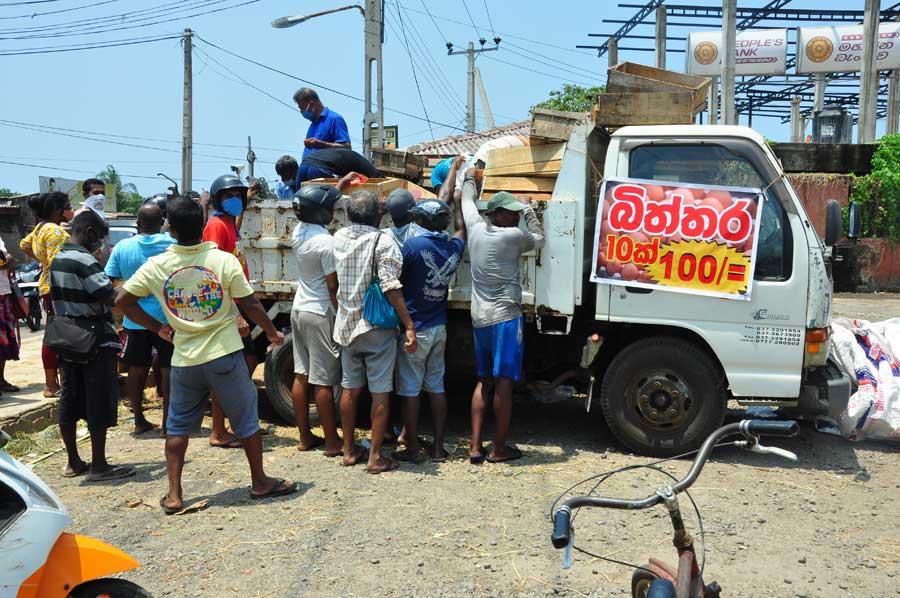
Like so many bad things, COVID-19 or Novel Coronavirus came across as something abstract, unreal, something which can’t happen to you. Though its death rate made one think of the Medieval Plague, and three months after we heard of the first Coronavirus patient in this country, it all somehow seemed so far away last week, when the 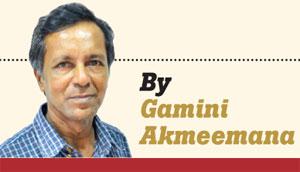
curfew was announced.
When that happened, I decided to write a Coronavirus diary for my Face Book page. We were no longer working. The paper had shut down temporarily and we were home, not knowing when we could return to work. I had no assignment to cover the epidemic.
But there is something in you which rebels against the idea of being confined, mentally, spatially, turning your own house into a prison; you rebel too, against the idea of being just a cog in a massive engine which suddenly shuts down in the middle of nowhere.
People working in certain sectors all over the world, from health workers, garbage collectors, street sweepers, delivery and transport workers, police, the military, and other essential services were taking massive risks simply by going to work. I have no idea if the media is classified as an essential service, but it is. Listening to radio was a huge source of comfort and information, and online news was a source of strength even if newspapers were shut down in many countries.
"But there is something in you which rebels against the idea of being confined, mentally, spatially, turning your own house into a prison"
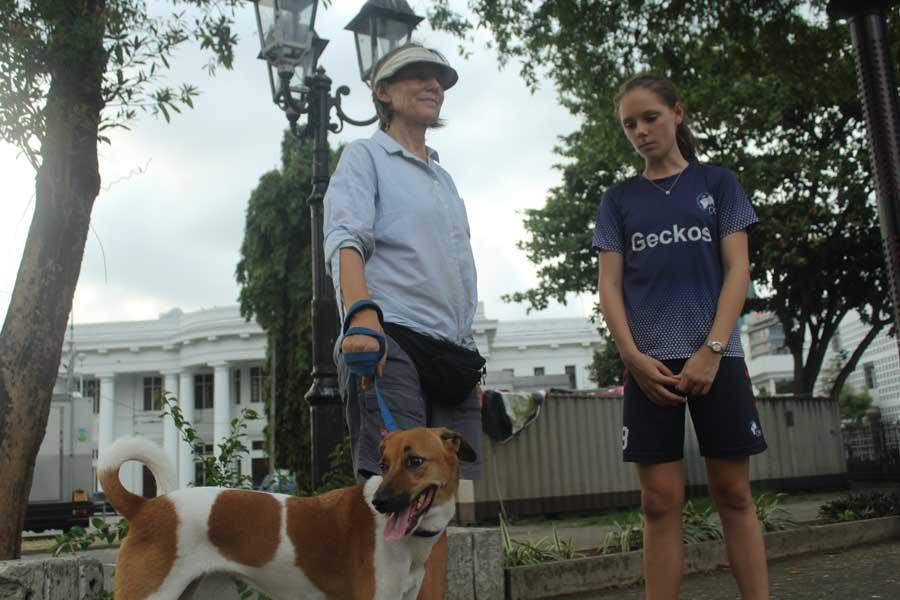
Mother and the daughter from New Zealand
I felt bound by conscience to keep a text plus visual diary of daily events as well as my own emotions throughout this ordeal, hence this Coronavirus diary. I prefer to call it that rather than the now official term of COVID-19, which sounds clinical and dry. (Novel) Coronavirus is more colourful, bringing to mind an image of something nasty with fangs and tentacles, straight out of a science fiction movie.
The diary started on Thursday, March 19, when I went to Pettah to record how fear of the epidemic was affecting life in this commercial beehive of Colombo. There were two water taps installed by traders where you turn towards Malwatte Road, (formerly Front Street) across the road from the Fort Railway Station.
Though many shops were shut, pavement stalls were open and brightly lit till past 7.00 pm, but the railway station had very thin crowds, as it was a day off for all employees - state
or private.
The curfew came to force at 6.00 pm on Friday. It was supposed to be lifted on Monday morning at 6.00 am, but went on till 6.00 am on Tuesday. Photos of the foreigners – the mother and daughter from New Zealand walking their dog near the Town Hall, and the three young French nationals stranded without a taxi in front of the closed Qatar Airways building, as well as a Chinese couple hurrying on foot with their groceries, were taken just before the curfew came into effect.
"From Saturday to Monday, I photographed what I could from home, in the street outside or in the neighbourhood"
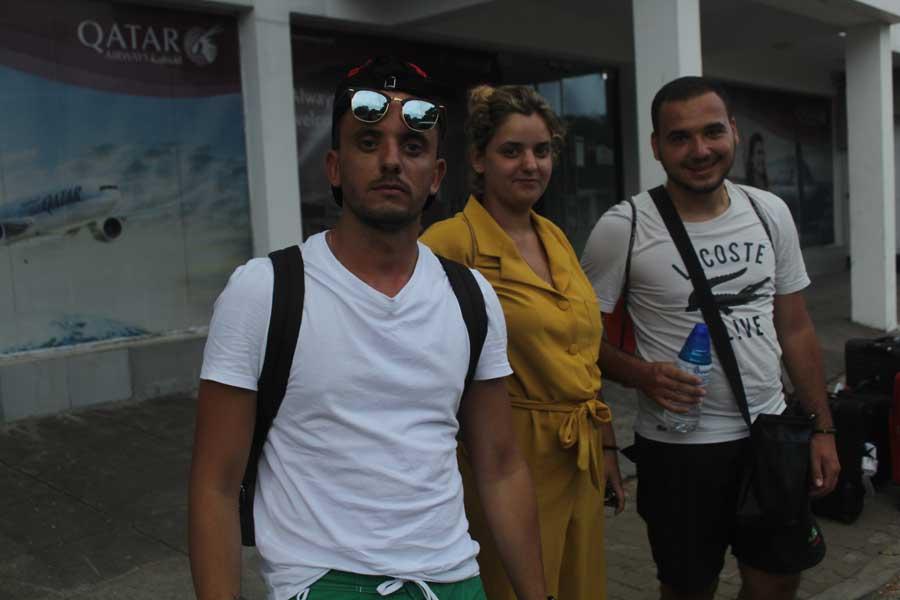
French Nationals stranded without a taxi
The laughing, chubby man is ‘Goluwa,’ a familiar sight in the Borella area for more than 20 years. He disappears from time to time and I saw him after a long time on Friday morning, March 20, along Cotta Road. As cheerful as ever, he could be the only person known to me totally unaware of Coronavirus, or blissfully unconcerned if he knew about it.
From Saturday to Monday, I photographed what I could from home, in the street outside or in the neighbourhood. Irangani, the street sweeper who turned up alone to work on Sunday morning, told me she had no money to buy provisions as the company pays them only on the 10th of each month. These people, and the beggars below them are the hardest hit. Then come the animals, cats and dogs, birds and beasts.
At the Buddhist temple, which faces Borella junction, there are hundreds of pigeons and they are given food and water daily. The temple was closed from Friday and the pigeons were starving. On Monday, a policeman came and left a few lunch packets there, but I didn’t see anyone feeding them after that.
"Our mental and physical capacities will be stretched to the limit, and we will need all our inner resources and some luck to survive"
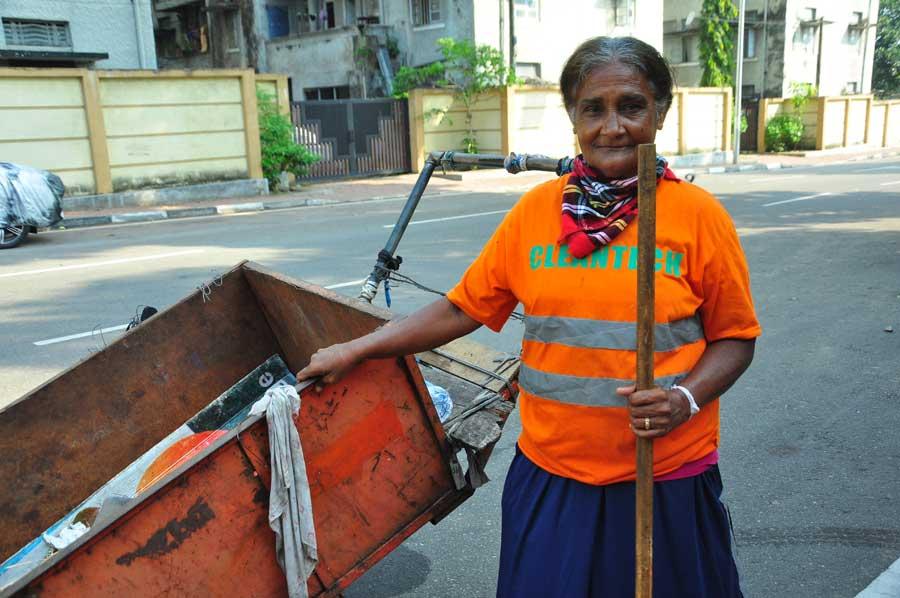
On Tuesday, once the curfew was lifted, I rode my scooter to Negombo to buy some dried fish. When the meat ran out, I could feed the dogs and cats with that. In Colombo, the traffic didn’t look heavy though there were kilometre long queues outside every supermarket and the police keeping an eye, though the crowds were orderly.
Many wore masks. Others covered their faces with cloth or handkerchiefs. How people found masks is a mystery, as none of the Colombo pharmacies which I visited had any. I covered my face with a scarf until a friend found me a mask in Negombo.
The road was clogged all the way from Wattala to Ja Ela, with vehicular traffic and pedestrians, and there were long queues outside supermarkets, pharmacies, petrol stations (with people queuing up for kerosene as well), groceries, vegetable stalls and meat vendors.
In Pitipana, the fishing hub of Negombo, all the boats were berthed. The vendors were selling frozen fish from their stores, no fresh fish was available. By the time I got there, the crowds were thinning, but a friend told me both the town and adjacent roads were jam packed with traffic - vehicular and pedestrian, that morning.
Now it’s back to curfew. The good news is that the expected spike in cases didn’t happen after the curfew was re-imposed, and no new cases were reported yesterday. Hopefully, we will be spared the worst. But we will have to live with a huge amount of uncertainty and fear in the foreseeable future. Our mental and physical capacities will be stretched to the limit, and we will need all our inner resources and some luck to survive.
It isn’t just social distancing that is going to help us survive. It is our capacity to find hidden strengths and resources.
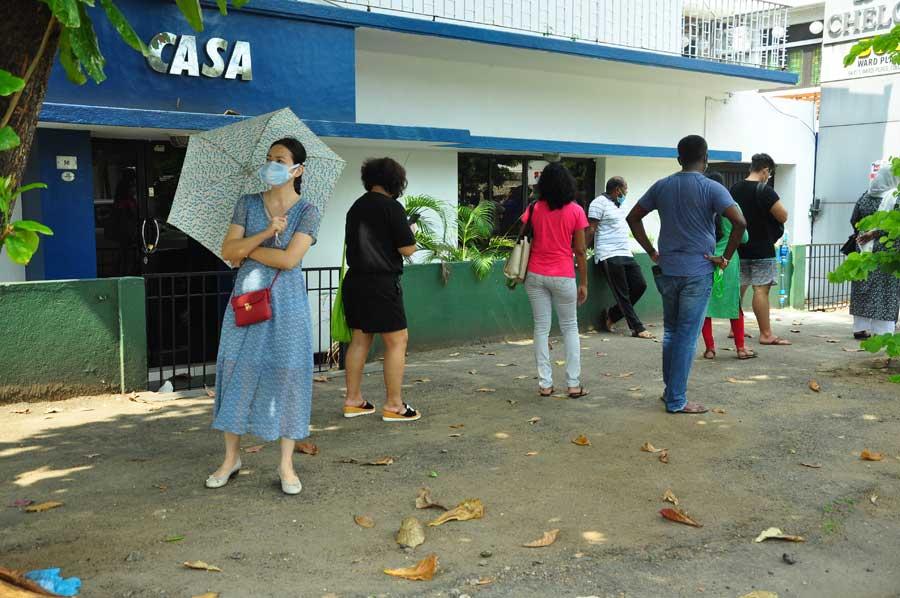
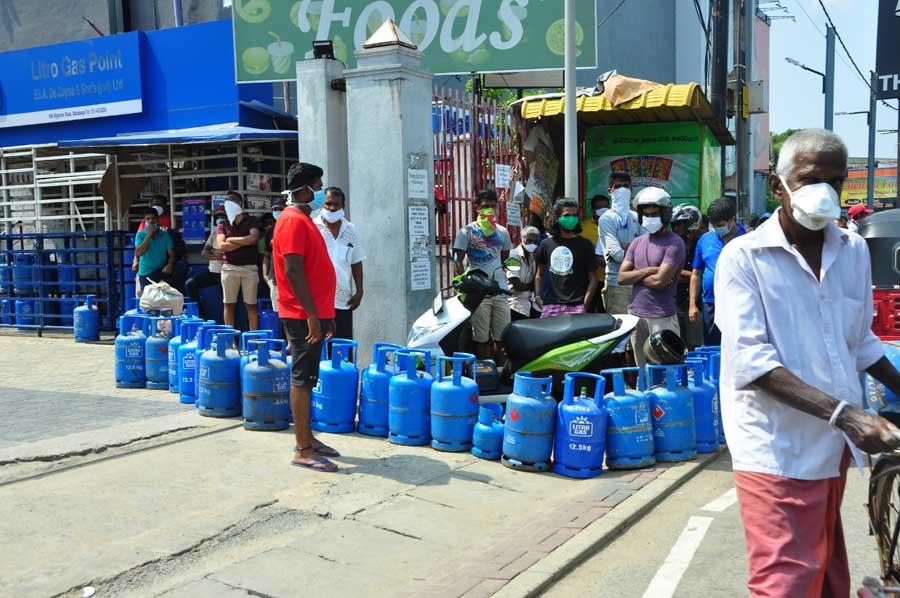
19 Apr 2024 33 minute ago
19 Apr 2024 2 hours ago
19 Apr 2024 2 hours ago
19 Apr 2024 2 hours ago
19 Apr 2024 2 hours ago